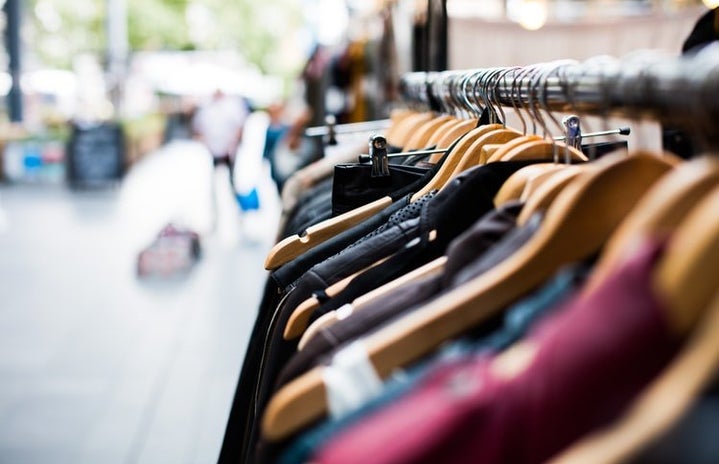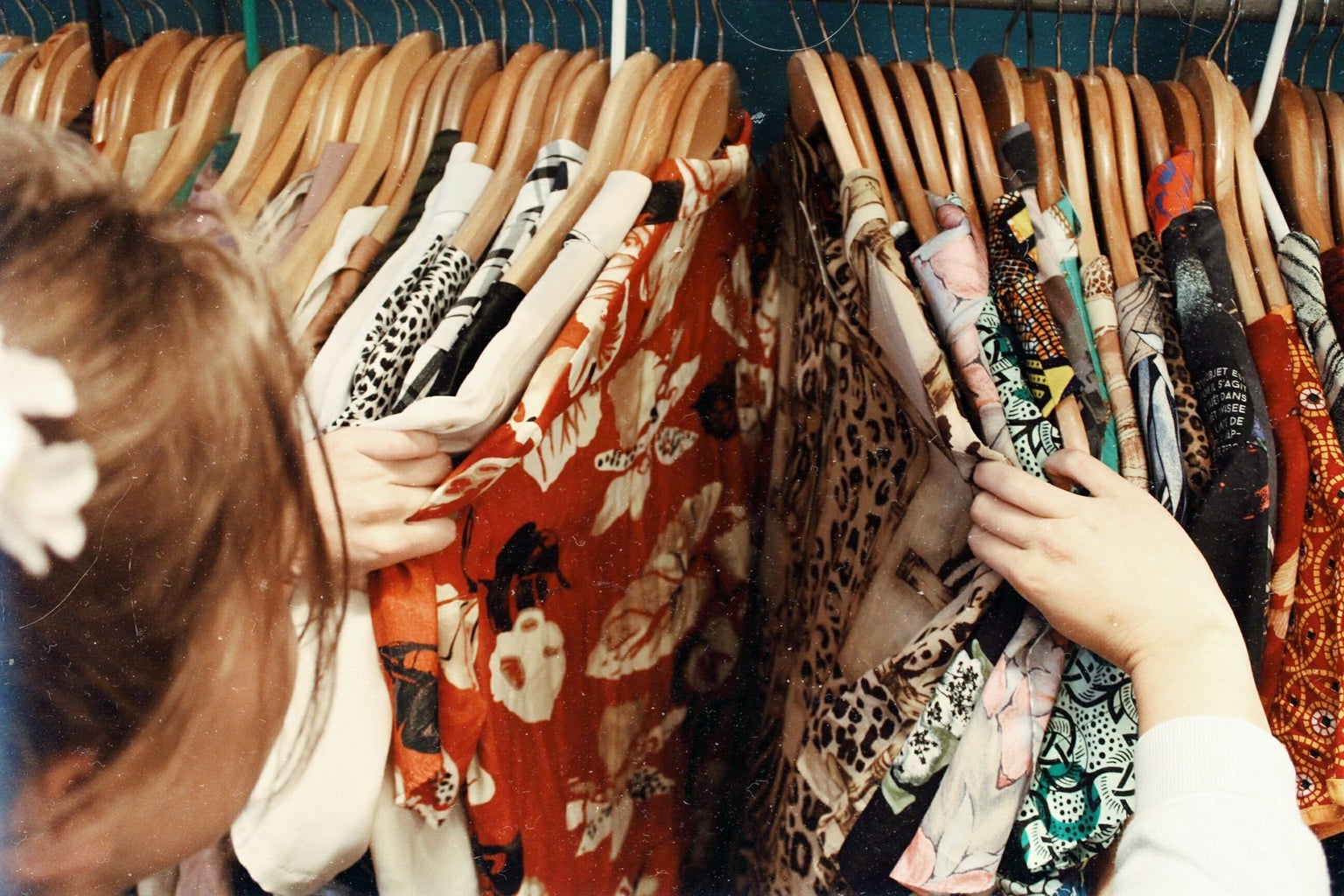In recent years, more and more clothing stores and brands have been utilizing recycled textiles in their designs. One of the biggest names entertaining this is Urban Outfitters, with their Urban Renewal line.
The environmental impact of clothing manufacturing is appalling; 10% of global carbon emissions are from the apparel industry. It is the second largest polluter in the world. Fast fashion has become so normalized that many of us are contributing to this pollution without even knowing it.
To the average consumer, cheaper clothing is more appealing. Cheaper clothes can be both made and bought in high quantities very easily. The problem with this, however, is that cheap clothing is not made to last. This results in a much higher rate of items being thrown away, then produced faster to compensate. The faster that products can be made, the faster you’ll see a piece from the catwalk advertised online — further increasing consumer appeal. This vicious cycle is a phenomenon called fast fashion. Because of it, clothing production is up 400% compared to 20 years ago. But really, fast fashion’s contribution to global pollution is just the tip of the iceberg when it comes to the detrimental environmental impacts of the fashion industry.
This is where the use of previously owned pieces and discarded textiles come into play; by purchasing less commercially-made products, we have the ability to at least slow the release of carbon emissions. Fortunately, there are now plenty of thrift stores and manufacturers that prioritize making reworked pieces. One of the more popular retail stores featuring vintage and reworked clothing is one that you may have purchased from before; Urban Outfitters. This is just one well-known example of sustainable retail clothing.
If you’ve ever browsed the Urban Outfitters website, you may have noticed a section titled “Urban Renewal”. This section contains one-of-a-kind vintage products, unique reworked products, and one-of-a-kind salvaged pieces. But if you’ve ever purchased a one-of-a-kind item, it’s hard not to wonder how it came to be.
All of Urban Renewal’s textiles and garments are sourced and sewn in the USA, avoiding overseas shipping — which further cuts down on carbon emissions. The garments go through many rounds of sorting and revamping before you can see them advertised online. It begins with sorting, where garments are selected based on their quality, aesthetic, and fit. The second round is a “repairing” round, where the selected items are fixed up enough to be resold. While one team cleans and repairs the garments, there is another line called the “recycled line” that brings the older items up to speed with modern trends. While some garments may only need minor repairs before they are sold, others would be completely unsellable if it weren’t for either tie dye or being deconstructed and combined with other items.
Urban Renewal also partners with remnant fabric warehouses, where remnant fabric (the over-produced fabric that would be otherwise thrown away) is selected to be worked into pieces. Fabrics are selected based on the season, and all follow a specific theme to create a collection of 30 pieces, which go up for sale each week.
The Urban Renewal line is just one well-known example of where you can shop sustainably — many newer clothing brands are dedicated to combating fast fashion by reusing and repurposing textiles and garments. The general process outlined in this article rings true for many of these sustainable slow-fashion brands.
With these improvements to the ever-changing fashion industry comes the potential for improvements to our closets. Consider adding more sustainable clothes to your closet; it’s time to shop smarter.
Can’t get enough of HC UMass Amherst? Be sure to follow us on Instagram, listen to us on Spotify, like us on Facebook, and read our latest Tweets!




